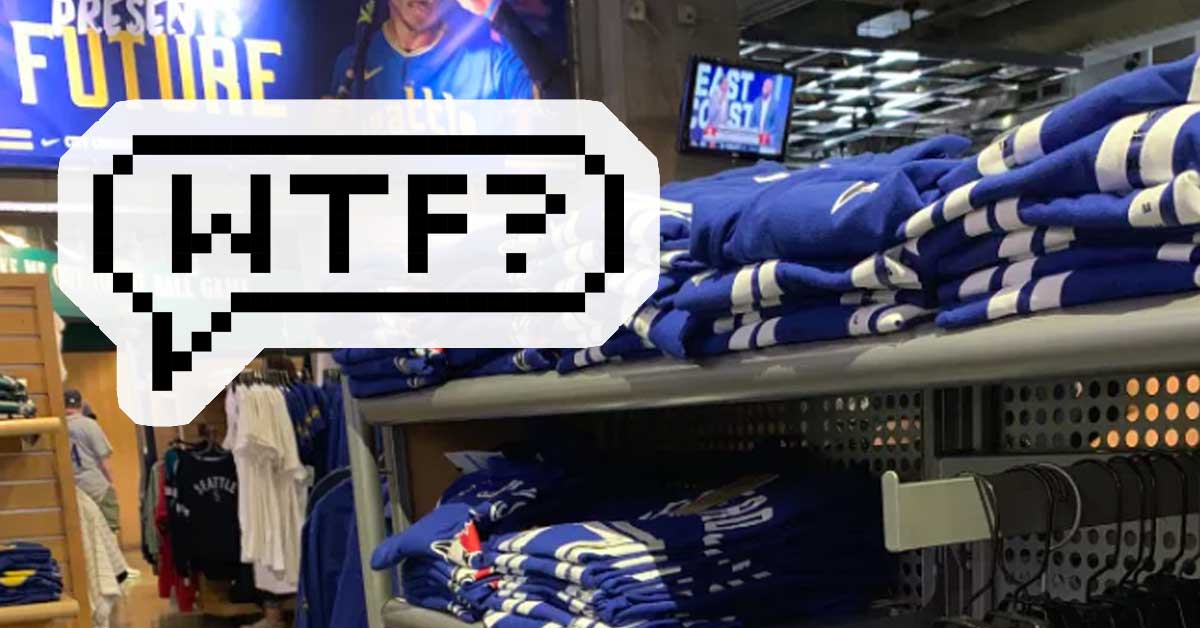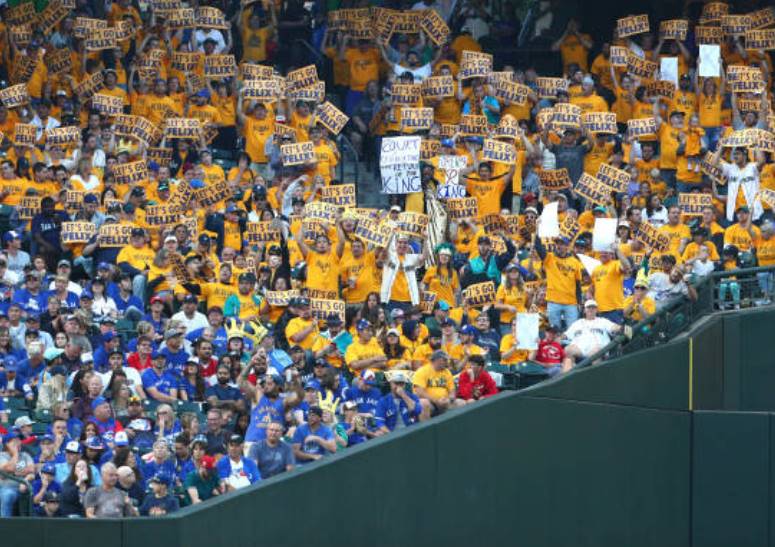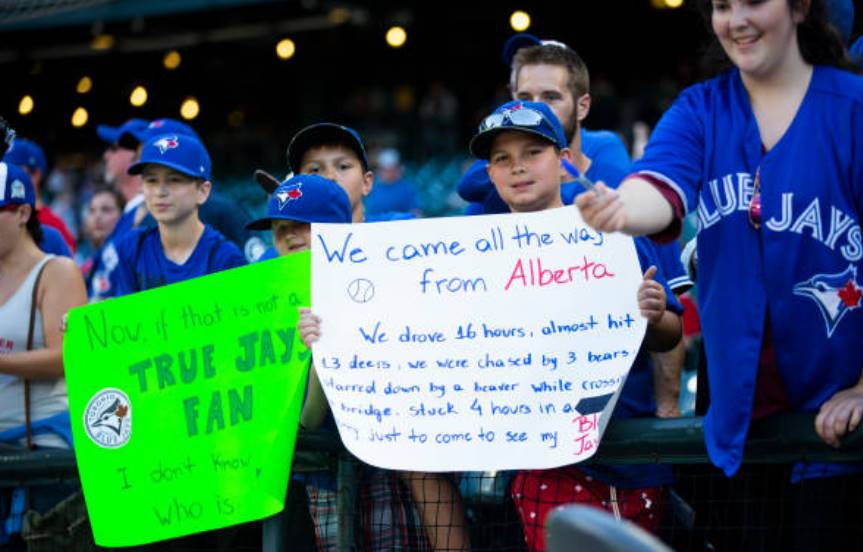
Why did the Seattle Mariners stock Toronto Blue Jays merchandise in their store?
"Seattle Mariners' Store: Get your Toronto Blue Jays merchandise! Limited time offer. Support your team and grab yours now. Shop today!" That would be so weird right? Well, it's not. That's what the Seattle Mariners intended to do ahead of their home weekend series against the Toronto Blue Jays with games on Friday, Saturday, and Sunday.
Learn more about the Seattle Mariners here and see if they are currently offering any jobs.
The Seattle Mariners' Struggle Between Fandom and Business: The Controversy of Selling Blue Jays Merchandise in Their Team Store
The world of sports is a delicate balance between the passion of fandom and the pursuit of lucrative business opportunities. For the Seattle Mariners, this balance came into sharp focus when they decided to stock Toronto Blue Jays merchandise in their team store during the annual series between the two teams. This move aimed to capitalize on the influx of Western Canadian fans filling the stadium to cheer on their beloved Blue Jays. However, what might have seemed like a smart business decision quickly turned into a heated controversy, with both fans and players expressing their discontent. This article explores the reasons behind the Mariners' decision, the impact on local fandom, and the subsequent backlash that led to the removal of Blue Jays merchandise from the team store.
The Fandom vs. Business Dilemma: Why The Mariners Stocked Blue Jays Merchandise
The Seattle Mariners, like any sports franchise, are not only driven by passion but also by financial considerations. Selling opposing team merchandise during specific games can be a financially enticing strategy. The Blue Jays' annual trip to Seattle inevitably attracts a large number of passionate Canadian fans who travel to support their team. Recognizing this as a business opportunity, the Mariners stocked their team store with Toronto Blue Jays apparel. The idea was simple: cater to the visiting fans, and in return, boost merchandise sales and potentially profit from the influx of Blue Jays supporters.
However, what may seem like a win-win situation in the boardroom doesn't always translate seamlessly into the stands. Mariners fans were left feeling betrayed as their team appeared to be accommodating the rival team's supporters in their own home stadium. This move raised questions about the authenticity of fandom and loyalty to the home team. It's one thing to endure a stadium filled with opposing fans during away games, but having your home team actively promote and profit from the opposing fanbase is an entirely different matter.
Players' Reactions
The backlash wasn't confined to the stands; it also impacted the players themselves. Pitcher Paul Sewald's bewildered reaction, "What the hell is this?" echoed the sentiments of many Mariners players who felt that the team's decision undermined their home-field advantage. Infielder J.P. Crawford's facepalm emoji expressed his disappointment with the team's approach to the situation.
The players' reactions are understandable; after all, they pour their heart and soul into the game, representing the city and its loyal fans. The presence of an overwhelming number of opposing fans can be demoralizing and disheartening, and selling the rival team's merchandise might have further exacerbated these feelings.
From a Blue Jays player standpoint, there is a general feeling of excitement for its new players to experience playing on the road in front of a Canadian-dominated crowd.

During the aired Blue Jays game on Tuesday, July 18, there was a segment where Blue Jays broadcasters Dan Shulman and Buck Martinez were interviewing Starting Pitcher Chris Bassitt from the dugout about launching his charitable initiative called the "Bassitts Pitch In" program. For every Blue Jays victory in games where Chris Bassitt is the pitcher, they have pledged to donate US$10,000. This commitment is retroactive to the beginning of the season, ensuring they support the cause throughout.
After the discussion about the cause ended, the broadcast crew showed a picture of the team shop in Seattle filled with Blue Jays merchandise. They appeared to playfully taunt Mariners fans. But Bassitt remained stoic and expressed his excitement to play a road game in Seattle for the first time as a member of Canada's only MLB team.
A Case of Déjà Vu
The controversy surrounding the Blue Jays merchandise at the Mariners' team store is not unique to Seattle. In fact, the Rogers Centre in Toronto has faced similar situations. When teams like the Boston Red Sox and New York Yankees visited Toronto, the stadium was often filled with fans of the opposing teams. As a response to this, the Blue Jays started selling merchandise of these visiting teams to capitalize on the strong presence of their fans.
While this move helped the Blue Jays profit from the visiting fans, it also sparked debates about prioritizing financial gains over genuine fan loyalty. Just like the Mariners' situation, this decision had the potential to alienate local fans who felt that the team was prioritizing business interests over their passion for the game and the home team.
The Backlash and Course Correction
As word spread about the Blue Jays merchandise in the Mariners' team store, fans and players expressed their discontent on social media. The image shared by Mariners Muse on Twitter went viral, with fans of other teams chiming in to criticize the decision.
Acknowledging the backlash, the Mariners quickly reevaluated their decision. Within a short period, the Blue Jays merchandise was removed from the team store, and it was restocked with Mariners gear instead. This course correction was likely an attempt to appease the disgruntled fans and players and reaffirm the team's commitment to its local supporters.

Conclusion
The Seattle Mariners' decision to sell Toronto Blue Jays merchandise in their team store ignited a fierce debate about the delicate balance between fandom and business in the world of sports. While seeking financial opportunities is understandable, it is crucial for sports franchises to remember the passion and loyalty of their local fanbase. The backlash and subsequent removal of the Blue Jays merchandise serve as a poignant reminder that teams must tread carefully in navigating the fine line between business and maintaining a strong connection with their core supporters.
As the world of sports continues to evolve, teams will undoubtedly encounter similar challenges, and the Seattle Mariners' experience provides valuable lessons on the importance of staying true to the essence of sportsmanship and community in the pursuit of commercial success. Striking a harmonious balance between fandom and business will remain a key challenge for sports franchises, and the story of the Blue Jays merchandise at the Mariners' team store will serve as a reference point in this ongoing conversation.
